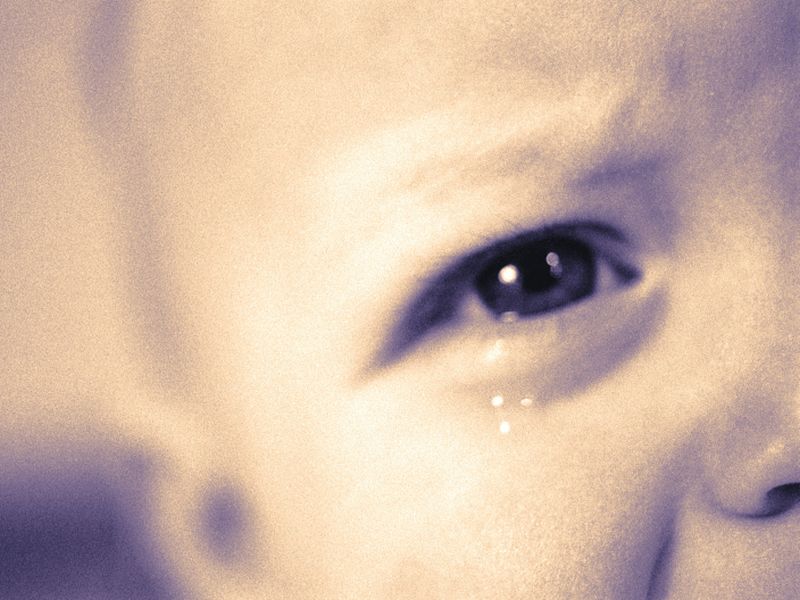
THURSDAY, Nov. 12, 2015 (HealthDay News) — Young children of U.S. Army soldiers may have a higher risk of abuse or neglect during and just after a parent is deployed abroad, a new study finds.
“The findings are not that surprising because a family experiences enormous stress when a soldier goes off on a deployment,” said Dr. Bob Sege, a pediatrician specializing in child abuse and vice president of Health Resources in Action, in Boston.
“The men and women who go off to fight for us are doing very admirable work, and it’s not a surprise that it’s stressful for their families,” Sege said.
Other kinds of stress, such as extreme poverty, partner abuse and postpartum depression, are already known to increase the risk of child abuse, said Sege, who wasn’t involved in this research.
“This study confirms the family stress theory of what causes child maltreatment,” Sege said. “That’s important because I think many people feel that people who maltreat their children are morally deficient. But, those of us in the field know that often, they’re just really stressed out beyond their capacity to deal with their situation.”
It’s important to note that the study’s design only shows a link between deployment and child abuse, it cannot prove a cause-and-effect relationship.
Findings from the study were published online Nov. 12 in the American Journal of Public Health.
More than 2.1 million American men and women have been deployed to international conflicts since late 2001. And, nearly half are parents, according to background information in the study.
Children’s Hospital of Philadelphia researchers looked at rates of confirmed maltreatment among children of more than 112,000 deployed U.S. Army soldiers. The investigators looked at the period between 2001 and 2007. They searched for evidence of neglect, physical abuse, general abuse, sexual abuse and abusive head trauma, including shaken baby syndrome.
The study focused on children under age 2 because they are at the highest risk for abuse or neglect, the authors said.
The rates of maltreatment hovered around 0.5 percent among children of soldiers who had been deployed once or twice. However, the rates were higher during and just after deployment compared to the six months before deployment.
In families of soldiers deployed once, nearly four episodes of abuse or neglect occurred per 10,000 children per month during deployment. That compared to three episodes in the six months before deployment. And, in the six months after deployment, the rate was almost 4.5 episodes per 10,000 children, the study found.
In families of soldiers deployed twice, the highest rate of abuse and neglect occurred during the second deployment, at a rate of nearly five episodes per 10,000 children per month, the research revealed.
The non-soldier caregiver perpetrated the child abuse 88 percent of the time during deployment. But, after deployment, the soldier was the perpetrator just over half the time (55 percent), the research revealed.
“The implication is that repeated experiences of relocation, separation, isolation and lengthy periods of absences by caregivers intensifies stress reactions and increases the incidence of child maltreatment,” said Mayra Mendez, program coordinator for intellectual and developmental disabilities and mental health services at Providence Saint John’s Child and Family Development Center in Santa Monica, Calif.
Sege recommended that families seek support.
“The social connection with other people in similar circumstances can be incredibly protective against child maltreatment,” Sege said. “Now the military can look at the whole family when a soldier is deployed and has the opportunity to keep a watch out for families that are in need. It offers the military a real chance to help.”
The study authors said the Army currently offers a variety of programs to the families of deployed soldiers, including parenting classes, child care services, and classes to help soldiers readjust to home life.
Study senior author Dr. David Rubin, a pediatrician and child abuse expert at Children’s Hospital of Philadelphia, said the “value of our study was to help identify the highest risk periods for young families in the Army so that the Family Advocacy Program and other support initiatives could be best targeted when families were most stressed.”
He noted that the Army had “already known that the period of deployment was a high-risk period as parents were separated from their families; our study reveals as well that when a soldier returns home, this period may be equal if not more stressful for some families.”
Yet the study may not offer enough information for the Army to determine specifically what more to do, suggested Dr. Christopher Greeley, chief of the section of public health pediatrics at Texas Children’s Hospital in Houston.
The study doesn’t separate the specific kinds of maltreatment, and 80 percent of maltreatment is neglect, Greeley said. For example, a previous study looked at the rates of abusive head trauma in more than a half-million children of service members from all military branches and didn’t find a higher rate in military families, whether a parent had been deployed or not, he said.
“This [neglect] could potentially be a very different mechanism than physical abuse,” Greeley said.
“Thus, the strategies for intervention or prevention would also be very different,” he added.
More information
The U.S. Department of Health and Human Services has more about preventing child abuse and neglect.
Copyright © 2026 HealthDay. All rights reserved.

